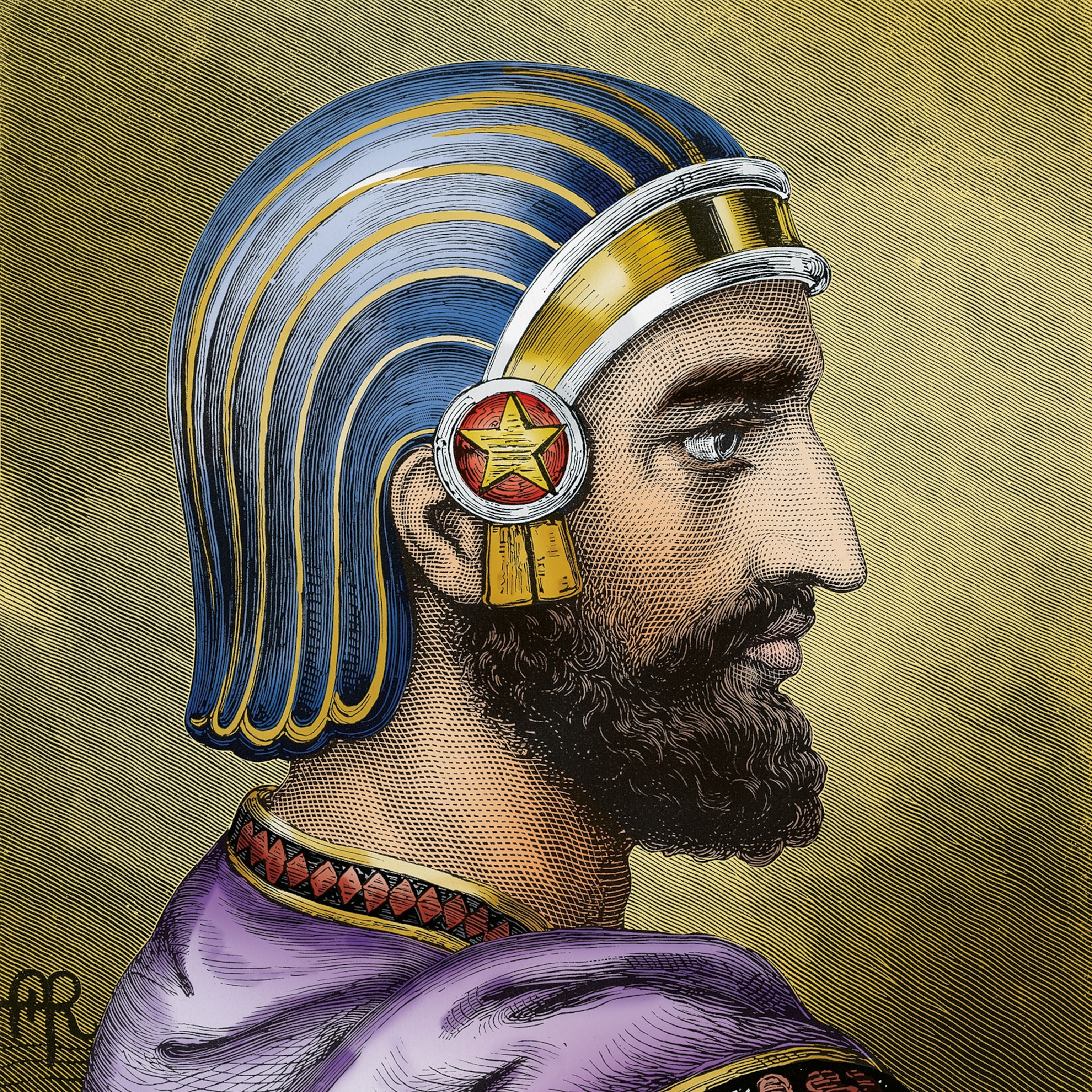
History's first superpower sprang from ancient Iran
Under the leadership of Cyrus the Great, Persia ruled the world's first true empire, centered in Iran and stretching from Europe to Egypt to India.
I am Cyrus, king of the universe, the great king, the powerful king, king of Babylon, king of Sumer and Akkad, king of the four quarters of the world . . . Found on a cylindrical tablet in the 19th century, these words commemorate Persia’s conquest of Babylonia and the taking of its capital city, Babylon, in 539 B.C. (Babylon was the jewel of the ancient world.)
After Cyrus came to power in 559 B.C., Persia expanded its holdings to become the world’s original empire. Previously, other peoples such as the Assyrians had held sway over vast tracts of Mesopotamia, but none had reached the geographical extent as Persia, whose territory stretched from eastern Europe to the Indus River. Strengthening the empire, Cyrus’s policy of tolerance toward the conquered allowed local peoples to maintain their languages, traditions, and religions, which in turn allowed Persian culture to benefit from a truly global exchange.
Cyrus’s construction of an imperial identity made up of many religions and languages continues to inspire the modern world. As the Greek historian Xenophon wrote, “Cyrus eclipsed all other monarchs, before or since.”

Origins of empire
When crowned king of Persia in 559 B.C., Cyrus II was little more than a tribal leader of the Parsua (Persian) people who lived in the south of present-day Iran. The latest ruler in the Achaemenian dynasty, Cyrus inherited a kingdom that was effectively a vassal state of the more powerful Median empire to the north.
In 612 B.C., the Medes had taken the Assyrian capital Nineveh, giving them control of a territory that stretched across Mesopotamia. Later, at the height of his power, the Median king Astyages decided to marry his daughter, Mandane, to the king of Persia, Cambyses I, in the 580s B.C. Their son, Cyrus II, would rise up to not only conquer the Medes but also build the world’s first true empire.
A famous tale about Cyrus’s birth comes from the Greek historian Herodotus, writing about a century after the king’s death. His account mirrors several Greek myths, such as the story of Oedipus, in which a prophecy of being overthrown by a son causes a king to try (and often fail) to thwart fate by killing the child. Herodotus tells how King Astyages had a dream in which his daughter Mandane “urinated so much that the urine filled his city, then went on to flood all of Asia.”
The king consulted his sages. They interpreted the dream as an omen that his grandson would one day conquer the Medes. To challenge the prophecy, Astyages married his daughter to a Persian ruler, so her offspring could not take the Median throne. Later, however, Astyages dreamed that a vine sprouted from his daughter’s womb and spread over Asia. Alarmed, the king placed his daughter under guard.
After Cyrus’s birth, the legend goes, Astyages ordered his general Harpagus to kill the baby. But instead of carrying out the murder himself, Harpagus handed over the newborn to a shepherd, asking him to abandon the baby in the mountains. The shepherd’s wife was grieving, as she had just had a stillborn child, so the shepherd brought the baby Cyrus home with him. The couple adopted him after placing the body of their own dead son on the mountainside instead.
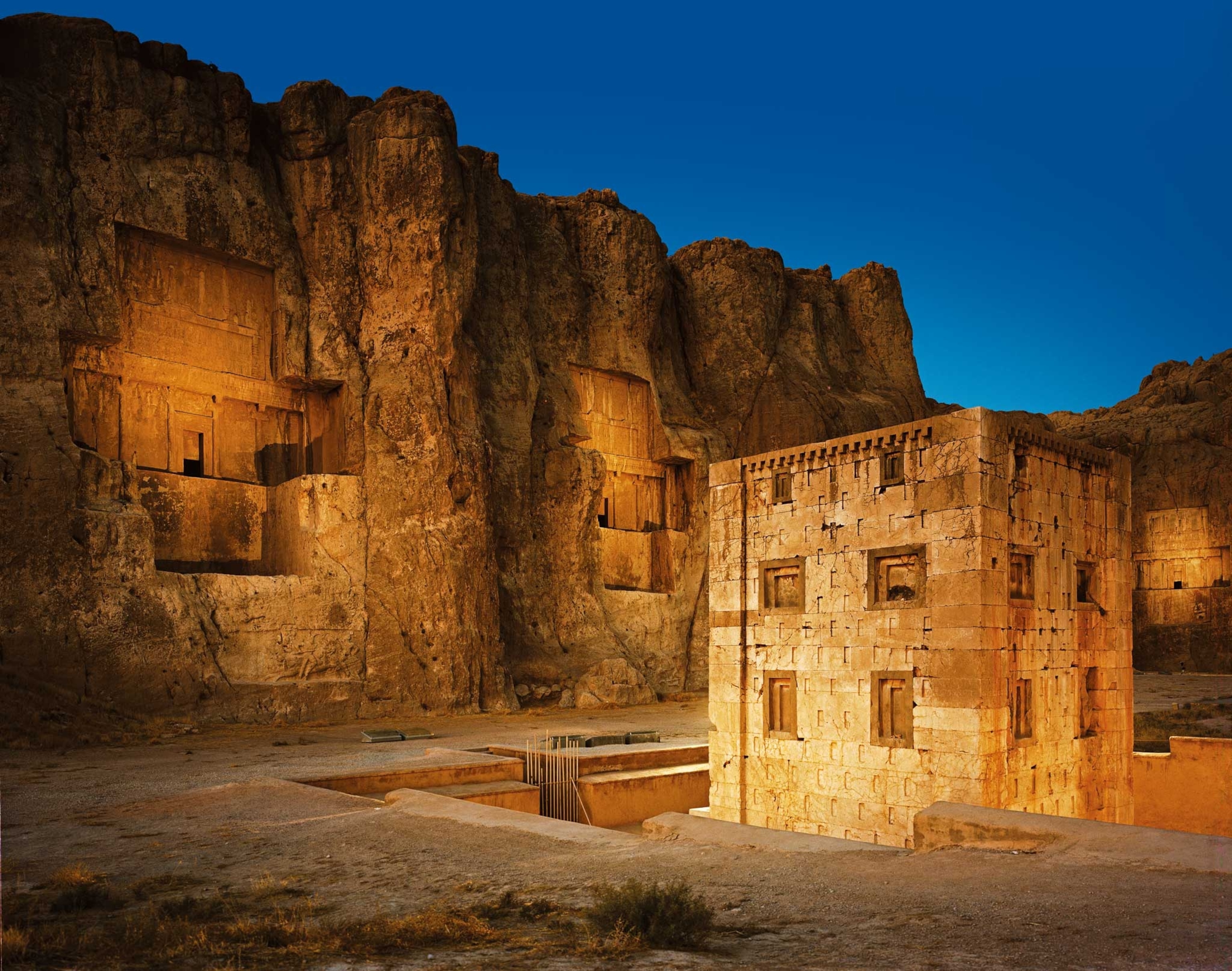
Road to Sardis
Herodotus’s story clearly includes many mythical elements, but—as with many legends—contains a kernel of truth. Later in life, Cyrus did indeed threaten his powerful grandfather Astyages when he invaded Media in 550 B.C. Astyages’s general, who really was called Harpagus, did betray his king, by defecting to Cyrus’s side, allowing the Persian king to seize the Median capital, Ecbatana.
From this moment, Herodotus recounts, the Persians and Medes were united under Cyrus II, soon to be known as Cyrus the Great. With Ecbatana under his belt, Cyrus turned his attentions to the kingdom of Lydia, in modern-day Turkey. Lydia was certainly a tempting prize: Renowned for commerce, the Lydians invented the basis for the metal coinage system still in use today. In 547 B.C., the Lydian king Croesus made incursions into Median territory, providing Cyrus with the perfect excuse for invasion. According to the Babylonian Chronicles—the Persian account of this period, later set down on clay tablets—Cyrus crossed the Tigris River, and marched to the Lydian capital, Sardis, along what would become the famous Royal Road, later built by Darius I to link Sardis with key cities across the Persian Empire.
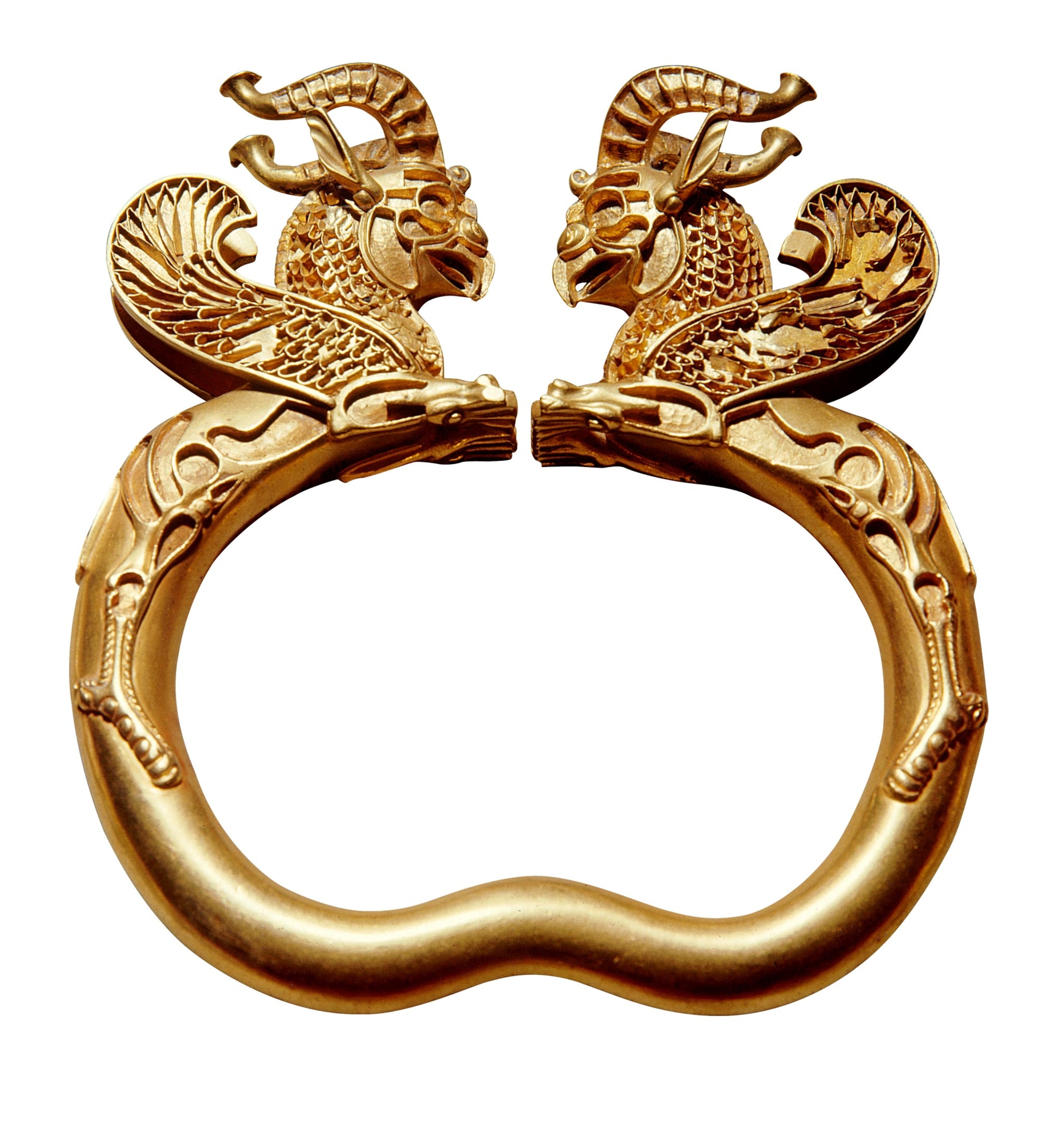
A first, indecisive clash with the Lydians took place at Pteria, in what is today northern Turkey. Following the battle, Croesus withdrew his troops to their winter barracks and urged his allies—the Spartans, the Egyptians, and the Babylonians—to send reinforcements in spring. Cyrus, however, chose to risk an immediate attack on Croesus. His military commander, Harpagus, pulled off a stunning Persian victory, placing Sardis and its treasure into the hands of the Persian emperor. Shortly afterward, Cyrus extended his control over the Ionian Greek cities along the western coast of modern-day Turkey.
The next decade of Cyrus’s reign was dedicated to expanding the eastern empire. Placing this territory under his control gave Cyrus control over the caravan trading routes. His campaigns took him as far as Bactria in modern-day Afghanistan, eventually reaching Maracanda, today known as Samarqand, in Uzbekistan.
By the waters of Babylon
With operations successfully tied up in the east, Cyrus set his sights on the greatest prize of all: Babylon, capital of Mesopotamia. The internal politics of Babylon at this moment could not have been more favorable for the Persians to strike. Nabonidus, the Babylonian king, had lost the confidence of the priests of Marduk, the city’s principal deity, because they believed that the king was denigrating the religious rites of the city.
Cyrus intuitively grasped that respect toward the diversity of religious customs in the huge territories under his command was a key ingredient of imperial stability. This policy only consolidated his power. The Cyrus Cylinder tells how Marduk sought an “upright king . . . [and] he took the hand of Cyrus . . . and called him by his name, proclaiming him aloud for the kingship over all of everything.” The cylinder describes the Babylonians’ reception of Cyrus as a liberator in the fall of 539 B.C.
The Cyrus Cylinder
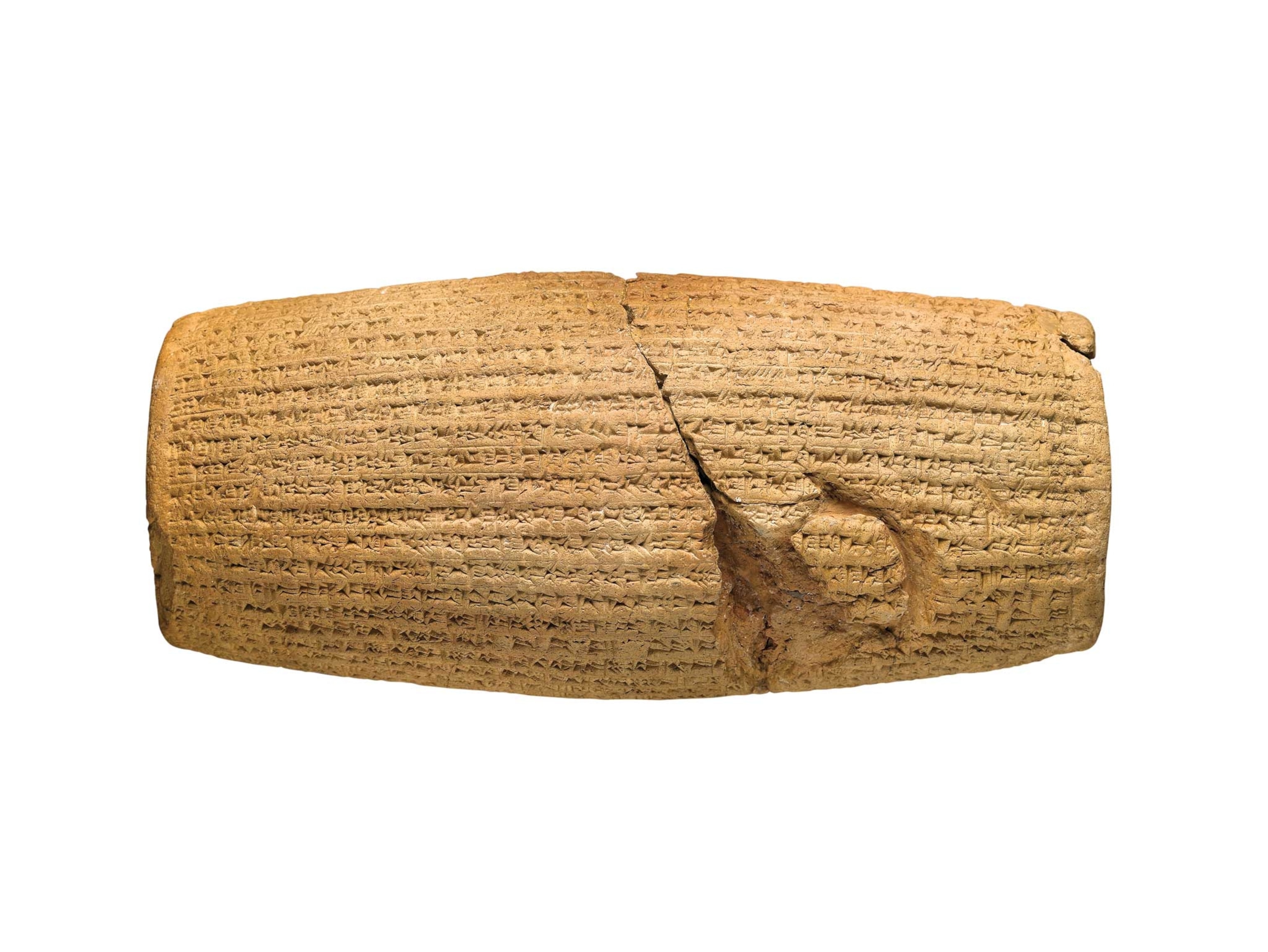
In 1879, archaeologist Hormuzd Rassam found an eight-inch clay cylinder embedded in the ruins of Babylon that dated back to the sixth century B.C. Broken in several places, the 36 intact lines of cuneiform text revealed a declaration by Cyrus the Great following his conquest of Babylon in 539 B.C. The Cyrus Cylinder portrays this event as a liberation carried out with the blessing of Babylon’s own deity, Marduk, who favored King Cyrus for his justness. One line in particular seems to corroborate the biblical version of the return of the exiled Jews to Jerusalem: “I collected together all of their peoples and returned them to their settlements.”
The priests of Marduk were not the only ones to celebrate Cyrus’s conquest of Babylon. Many Jews had been living in captivity in Babylon since Nebuchadrezzar II had brought them there following his conquest of Jerusalem in 586 B.C. The arrival of Cyrus forms the backdrop to the stories of Daniel in the biblical book Apocrypha. The emperor’s decision to repatriate the Jews to Jerusalem is yet another example of Cyrus’s embrace of multiculturalism, earning him a eulogy in the Bible itself: “Thus says the LORD to his anointed, to Cyrus, whose right hand I have grasped,” wrote the Prophet Isaiah, one of the Jewish exiles in Babylon, “to subdue nations before him and ungird the loins of kings, to open doors before him that gates may not be closed.”
Cyrus had reached the pinnacle of his power. He did indeed seem, as the Cyrus Cylinder claims, to have become “King of the World.” Following this victory, kings from across Asia scrambled to pay homage to him, the leader who had created the largest empire the world had ever seen. Written in cuneiform, the Cyrus Cylinder recounts how sovereigns from the Upper Sea (the Mediterranean) to the Lower Sea (the Persian Gulf) came to offer tribute to Cyrus in Babylon and kiss his feet.
Policy of Tolerance
Cyrus’s spectacular conquests forced him to create an administration fit for an empire. Inspired by the sophisticated model of the Neo-Babylonian Empire, Cyrus created a network of public administration and tax collection while recruiting the best military generals from among the Medes.
Following the conquest of Lydia and the Greek cities of Ionia in the west of modern-day Turkey, the Persian administration was split up into provinces. Later, Babylonia and the other conquered areas were also converted into provinces, ruled by satraps, or governors, a system later completed under Darius I.
Remarkably, Cyrus had no intention of imposing Persian religion, language, or culture on his new conquests. His style of government was based on respect for the many peoples over whom he reigned, and tolerance toward their customs and religions, setting him apart from earlier empire builders.
Displaced peoples were allowed to return to their homes—most famously in the case of the Jews exiled in Babylon, to whom Cyrus gave his blessing to return to Jerusalem. Local governors could conserve their autonomy, provided that they paid respect, and tribute, to the great king.
Pax Persiana
If the rise of the Persian emperor was stellar, his end was a grim anticlimax. In 530 B.C., when he was approaching his 60s, Cyrus led a campaign to the northeastern frontier of his empire. According to Herodotus, he believed that “against whatever country he turned his arms, it was impossible for that people to escape.”
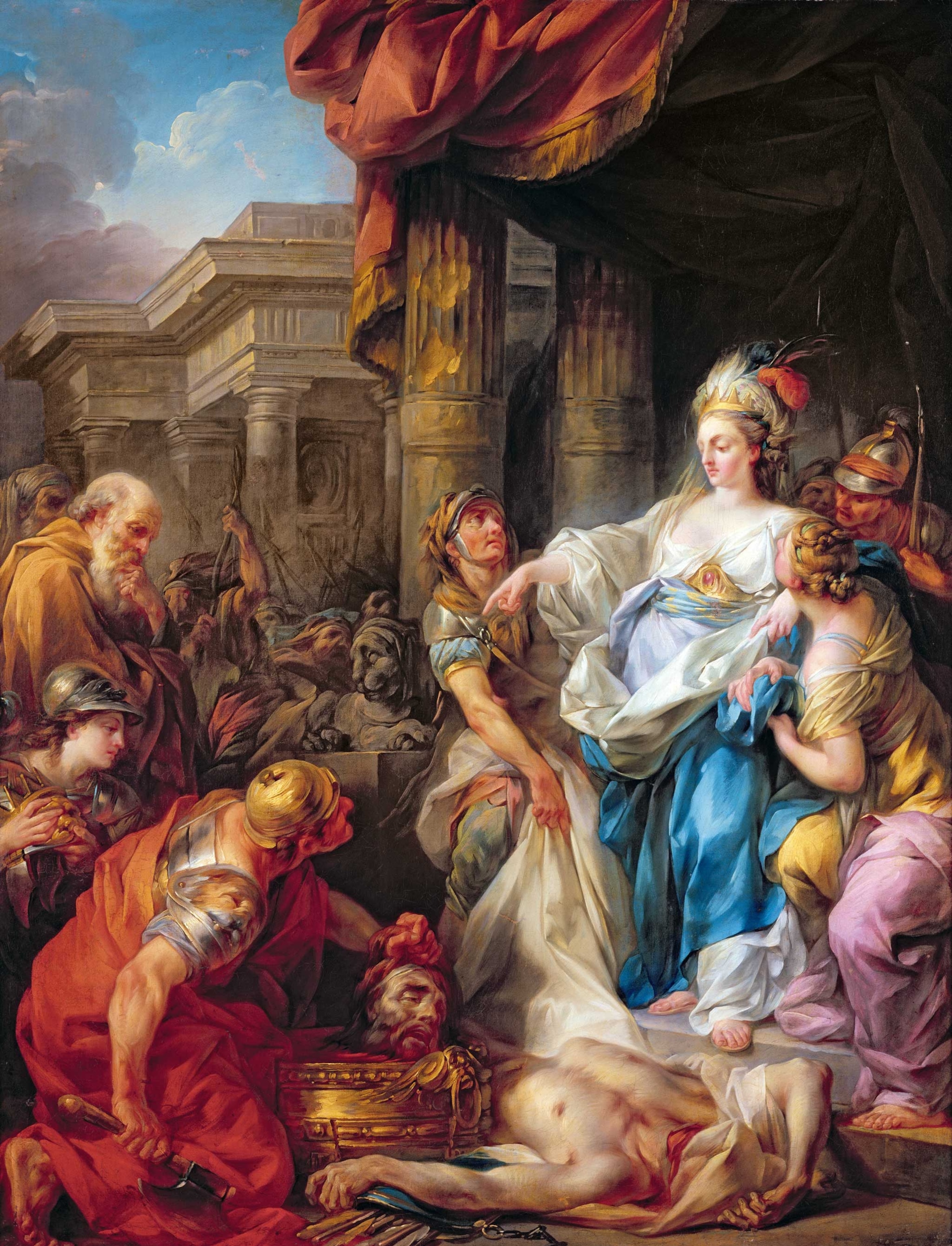
Do Herodotus’s words hint at hubris? Cyrus was killed during a battle against a local tribe, the Massagetae. According to the Greek historian, the queen of the tribe, Tomyris, had lost her own son in the battle and plunged the emperor’s severed head in a pail of blood.
Cyrus’s gruesome end did not diminish his astonishing legacy, nor did it stall the ongoing expansion of his already colossal empire. His immediate successor, Cambyses II, conquered Egypt, establishing its 27th dynasty. Attempts by Cambyses to push even farther afield into Ethiopia, and west toward Carthage, were frustrated, and it was left to his successor, Darius I, to take the Persian Empire to its widest span, conquering the Indus Valley and crossing the Danube into Europe.
Capital Cities

Cyrus began construction of his own capital city in Persia, Pasargadae, in 546 B.C., but it was unfinished when he was killed in battle. His tomb sits in the step-based monument that dominates the plain just outside ruins of the ancient city, which boasted two royal palaces and an extensive, walled hunting park with wild animals roaming free. Despite its attractions, Pasargadae was abandoned when Darius I, successor of Cambyses II, founded Persepolis nearby, a city that became a byword for luxury. When the 16th-century English writer Christopher Marlowe wanted to evoke the wonders of majesty in his play Tamburlaine the Great, he has the title character proclaim: “Is it not brave to be a king / and ride in triumph through Persepolis?”
The son of a provincial governor, Darius had to prove his mettle by quashing numerous revolts. But his greatest legacy was his administrative genius: His schemes to standardize weights and coinage across his vast territories became a blueprint for the world’s future empires. Continuing the religious policy set by Cyrus, faiths within the empire were allowed to flourish, including those of the Jews and the Egyptians.
Darius’s bid for westward expansion was checked at the Battle of Marathon in 490 B.C. The failure by his successor, Xerxes I, to break the Greeks at the Battle of Salamis a decade later, opened a new chapter in world history: the flourishing of fifth-century B.C. Athens.


